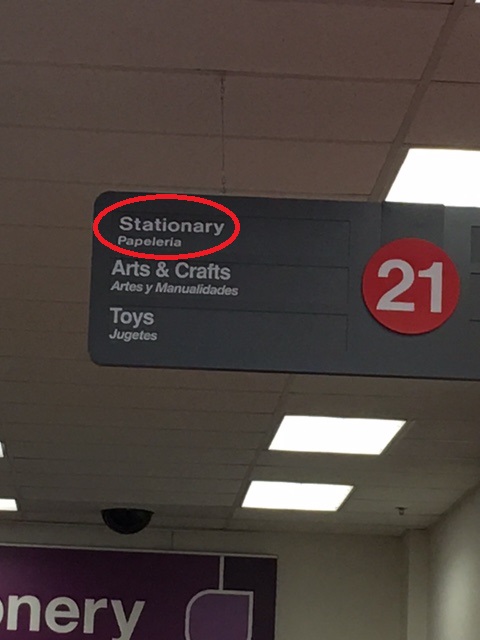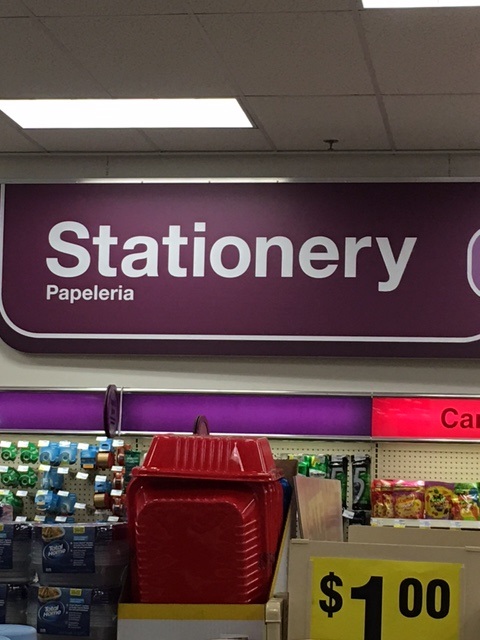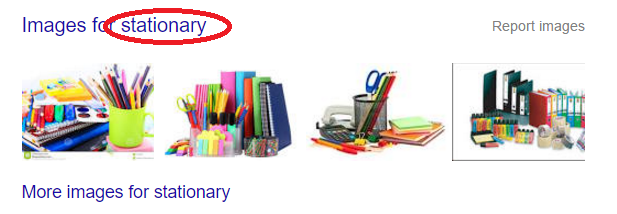Sunday, March 9, marks the beginning of daylight saving time throughout most of the  United States. Being an Arizona native, I remember when we tried daylight saving time here. It’s tough to put a kid to bed when the sun is bright overhead. Arizona has not observed daylight saving time for many years, but that’s not the intended topic.
United States. Being an Arizona native, I remember when we tried daylight saving time here. It’s tough to put a kid to bed when the sun is bright overhead. Arizona has not observed daylight saving time for many years, but that’s not the intended topic.
You may have noted that in the paragraph above it was daylight saving time NOT daylight savings time. Singular “saving” is correct. The proper way to indicate the time for the different time zones during daylight saving time is:
EDT – Eastern daylight time
CDT – Central daylight time
MDT – Mountain daylight time
PDT – Pacific daylight time
That designation indicates that the specified time is during daylight saving time in the specific time zone. For instance, 3:00 p.m. MDT would be 3:00 in the afternoon in Denver (and other cities in the Mountain time zone) on dates between March 9, 2014, and November 2, 2014 (the date range when daylight saving time is in effect this year). The other part of the year is standard time and would be designated as:
EST – Eastern standard time
CST – Central standard time
MST – Mountain standard time
PST – Pacific standard time
An alternative is to eliminate the specific designation altogether and use these terms year-round:
ET – Eastern time
CT – Central time
MT – Mountain time
PT – Pacific time
While we’re talking about time, the difference between a.m. and p.m. is important. The designation “a.m.” stands for the Latin term ante meridiem and means the time from midnight to noon. The designation “p.m.” stands for the Latin term post meridiem and means the time from noon to midnight. While people seem to grasp that concept, the exact times of midnight and noon seems to confuse them. The time 12:00 a.m. is midnight (it is between midnight and noon) and 12:00 p.m. is noon. Note that 11:59 at night is 11:59 p.m. because it is between noon and midnight. It is always good to confirm whether the a.m. or p.m. is correct so people don’t think an event is 12 hours earlier or later than intended.
To those of you who will “spring forward” this weekend, enjoy it and keep the time straight so others know exactly what time you are talking about.



 Follow
Follow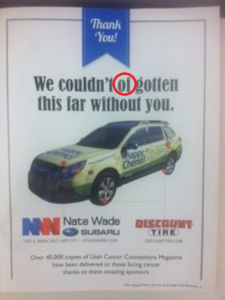


 A reader wrote and asked me whether the phrase “attorney-client privilege” or “attorney-client privileged” was correct. I gave her my answer and told her that I would write a blog post on it.
A reader wrote and asked me whether the phrase “attorney-client privilege” or “attorney-client privileged” was correct. I gave her my answer and told her that I would write a blog post on it.
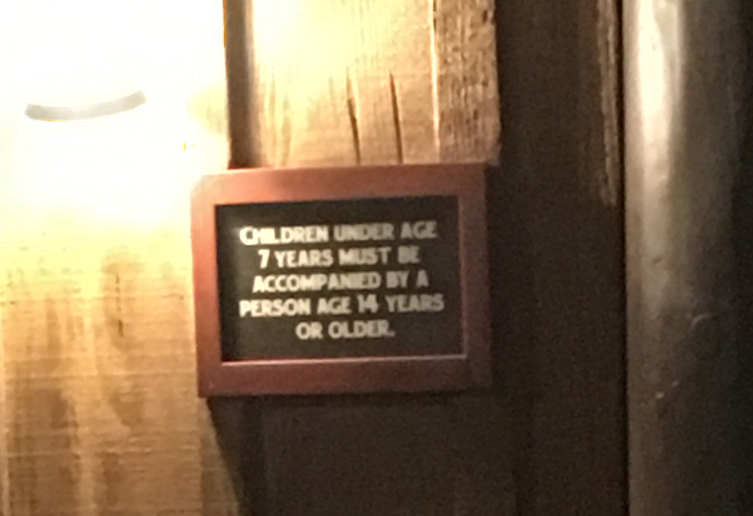 I saw this sign more than once at Disneyland (consistency is good!). I thought something was wrong with it, so snapped this picture vowing to do some research and figure out if I was correct. The problem is whether it should be “age” or “aged.”
I saw this sign more than once at Disneyland (consistency is good!). I thought something was wrong with it, so snapped this picture vowing to do some research and figure out if I was correct. The problem is whether it should be “age” or “aged.” A friend and I were recently discussing what our possibilities for recreation are for a trip to Sedona, Arizona, this summer. When I said “vortexes,” her response was “shouldn’t it be vortices?” I had never heard that word, but told her I would investigate and use it as a blog topic. So here we are.
A friend and I were recently discussing what our possibilities for recreation are for a trip to Sedona, Arizona, this summer. When I said “vortexes,” her response was “shouldn’t it be vortices?” I had never heard that word, but told her I would investigate and use it as a blog topic. So here we are.
